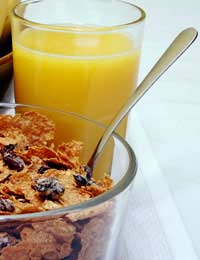Constipation

Constipation is not something that often comes up in day to day conversation. But no matter how unpleasant it is something that has affected each of us at some point or another. Constipation is at its least uncomfortable and stressful, at its worse, chronic constipation can lead to serious health problems.
By medical definitions your are constipated if you have less than three bowel movements in a week. This has been euphemistically described as “irregular”. There really is no rule that says you need to have a movement everyday, although some people think so. Diet and activity level all effect bowel movements. Generally your body will find a routine of “regular” bowel movements that is right for you based on your individuality. But even going for a single day with out a “regular” bowel movement can be distressing and uncomfortable for some people. However long you have been constipated, whether it has been days or just a few hours, being constipated can make you feel bloated, slow, sluggish, “plugged up” or just plan miserable.
Avoiding Constipation
Diet and regular activity are the surest way to avoid constipation. When your mum said, “eat more fiber” she was absolutely right. Fiber rich foods help avoid constipation as well as aid in digestion, and help to cleanse or remove toxins from the body. Fiber rich foods are found among fruits, vegetables, and grain food groups.
Fiber Rich Fruits
- Apples,
- Raspberries
- Tangerines
- Peaches
- Broccoli
- Brussels sprouts
- Cabbage
- Raw Carrots
- Cauliflower
- Cooked Spinach
- Cold Whole-grain cereals such as Bran Flakes, Raisin Bran, All-Bran
- Hot Whole-grain cereals
- Whole-wheat or 7-grain bread
Keeping yourself properly hydrated with water or fruit juices can also help to avoid constipation, as will regular exercise. Check with your doctor if you have recently been taking any new medication. Some common medications including calcium pills and antacids can cause constipation, as can some prescription medications.
Treatments for Constipation
Increasing the amount of fiber to the diet is usually all it takes to clear up a bout of constipation. If adding more fiber to your diet has not been enough to “get things moving” again, there are many treatments available for constipation. The most common treatment for constipation that does not respond to changes in diet is to use a laxative. Laxatives should only be used after other methods have been tried and failed. “Natural” laxatives such are nothing more than bulk fiber, and will just do the same thing as eating more fiber, albeit perhaps a little quicker. A true laxative is a medication that will make the body pass a stool. A medicinal laxative should not be used without the advice of a doctor or pharmacist.Alternative treatments include:
- Colonic Irrigation
- Enema
- Suppositories of Glycerin, Sorbitol, or other oils
- Adult Bed Wetting
- Coping With a Speech Impediment
- Coping With Memory Loss
- Coping With Excessive Skin Tags
- What Causes Worms and How are they Treated?
- Frequent Urination and How to Treat it
- Anal Bleeding and What Could be the Cause
- Living With and Treatments for Haemorrhoids
- Herpes and Blisters on the Body
- Dealing With Impetigo
- Coping With Pruritus Ani
- Loss of Libido
- Treatments for Snoring
- Thrush
- Types of Skin Scars
- Wind
- Unwanted Hair
- Incontinence
- Irritable Bowel Syndrome
- Piles
- Puberty Issues
- What Are Shakes?
- Moles
- Diarrhoea
- Belly Button Discharge
- Anal & Genital Warts
- Excessive Sweating


Re: Talking to an Elderly Person About Hygiene
My mom is 95. I had a talk with her about having someone come in and do light housekeeping, wash her bed sheets…
Re: Adult Bed Wetting
I am 57 and still wet the bed most nights.
Re: Verrucas
I'm 13 in about 6 days I've had verrucas since I was 8-9, it's so embarrassing because I have to get changed in a group for PE I have one on the outside of…
Re: Hairy Toes & Feet
So funny how bigots of both signs say the opposite, that the shaved man aesthetics is influenced by gays, now some gay people say it's…
Re: Inverted Nipples
Hi im 13 and yesterday i realised i have inverted nipples but i had a surgery near my heart when i was four months old and i just want to not have…
Re: Adult Bed Wetting
i have been a bedwetter for so long now i am used to it and sleep in a single bed next to my wife
Re: Adult Bed Wetting
Hi im 52 the last 6 months ive started to.wet the bed. It can happen 2 or more times a week . I went to bed at 2am i woke up at 5am needing to…
Re: Unsightly Warts on the Face and Neck
Ihello I have face warts many years and Neck ,pls help
Re: Adult Bed Wetting
i was a bedwetter as a child until 15 due to molestation a few times growing up.. then went in hospital age 18 and wet the bed whilst staying…
Re: Inverted Nipples
Blb - Your Question:Hi I’ve recently had my baby and ever since Then I have one inverted nipple not breastfed should I be concerned?